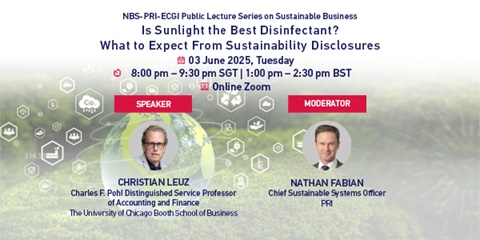What happens if you take a plastic bag without paying from July 3?
Big supermarkets will start charging for disposable bags used to carry purchased groceries from Monday.
And shoppers taking plastic bags without paying for them could be committing theft, legal experts told The Sunday Times.
Under the Resource Sustainability Act (RSA), supermarket operators with an annual turnover of more than $100 million must start charging a minimum of five cents per disposable bag.
The big operators include FairPrice, Cold Storage, Giant, Sheng Siong and Prime Supermarket.
Associate Professor Hannah Yee-Fen Lim of Nanyang Technological University's (NTU) Nanyang Business School said: "The supermarkets are imposing and collecting the charge -- it is just that the customers might commit something equivalent to theft by not paying."
Prof Lim, who has been teaching sustainability law at NTU since 2012, added: "It is like everything else in the supermarket. The seller imposes a price, but if people take bread (for instance) and walk out of the store without paying, you can't say the supermarket is not imposing or collecting the money for the bread."
FairPrice told reporters on June 19 that an honour system will be implemented, counting on the honesty of consumers to pay for plastic bags taken at self-checkout counters.
But can this honesty system be compliant with the law?
In response to ST queries, FairPrice said that front-line employees are trained to be vigilant in ensuring that customers pay for the bags, and will remind those who neglect to do so. "Our manned and self-checkout areas are already monitored by closed-circuit televisions."
DFI Group, which runs Cold Storage and Giant supermarkets, said the operators will have barcodes at self-checkout counters for customers to scan the number of bags taken, with staff manning checkout counters.
At Prime supermarkets, apart from the barcodes at self-checkout counters, every plastic bag will also come with a barcode that can be scanned.
Sheng Siong will have a plastic bag dispenser at self-checkout counters, said a spokesman. Customers will have to press a button on-screen to receive a plastic bag from the dispenser.
The National Environment Agency (NEA) said the implementation of the bag charge across different operators will be monitored for compliance.
In response to queries from ST, NEA said: "As per current practice, supermarket operators have said that they intend to deploy trained staff to oversee the self-checkout counters and monitor, guide or remind customers to scan and pay for disposable carrier bags, as well as to minimise pilferage."
Mr Timothy Goh, partner at law firm Dechert, said: "The challenge of a purely honesty-based implementation, one that is leaving it solely to customers to declare and pay for the number of plastic bags they take, is proving whether the collection (of the money) obligation under the RSA has been satisfied.
"Staff manning the self-checkout counters to remind customers to scan the barcode if they fail to do so should in practice allow such registered retailers to ensure that their collection obligation under the RSA has been satisfied."
Under the RSA, responsible parties at supermarkets that fail to comply with imposing and charging could be fined $10,000, jailed for three months, or both.
Prof Lim highlighted many statutes around the world on environmental issues that impose fines and jail time as penalties.
She said that in Kenya, where the production, sale or use of plastic bags is punishable with jail of up to four years or a fine, social media had come out in full support of three men who were arrested in 2020 for using plastic bags to contain fruit sold.
"The livelihood of humans is equally important. Sustainability is about all three Ps of people, planet and profits," she said.
Supermarket operators will be required to report to NEA annually by March 31 on the number of disposable carrier bags provided to customers in the preceding year, the agency said.
It added that the number of plastic bags should tally with the amount of money collected.
Source: The Straits Times




.tmb-listing.jpg?Culture=en&sfvrsn=8b2cb369_1)


